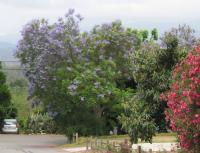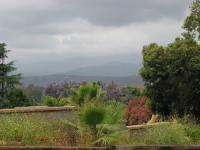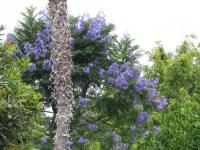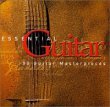June 23, 2007
Guess what we found in our yard today? Warning, the answer may disturb you. In fact, if you don’t like insects, you might want to scroll back down to the jacaranda post. Yeah, another bug. We’ve decided maybe our yard is some kind of strange crossroads for wildlife, because all these critters keep showing up that we’ve never seen before, many of them bugs.
Yesterday afternoon, while we sat on the front porch admiring our newest young trees and basking in the flush of their recent growth, we saw a curious flutter of orange wings lit by the glow of the sinking sun. We didn’t recognize the creature, but it looked too small for a hummingbird and too big for an insect. A dragonfly perhaps? But we’d never seen an orange one. Before we could get a closer look, it was gone, so ephemeral it could’ve been a little orange fairy come to celebrate our new mini-grove of trees with us. (more…)
June 12, 2007

The jacarandas are blooming in my neighborhood. They’re not natives here, but enough are planted in coastal Southern California that they sometimes seem to be natives, filling the landscape with lavender blossoms every May and June. Even with none planted in our yard, every direction I look I can see a jacaranda blooming. (Click on images to view larger.)
This period of late spring and early summer is one of my favorite times, when we have gray overcast or fog in the mornings, and sometimes all day. These weather conditions are nicknamed May Gray and June Gloom, or more correctly called coastal eddies. The clouds linger for at least part of the day, with a cool ocean breeze, sometimes followed by clear blue skies all afternoon. I relish every minute of this until summer’s heat sets in. I want to stay outdoors for hours at a stretch, or do the heavier housework that is best done with all the windows open, until summer’s heat makes me want to sit near an air conditioner and do nothing.




June 8, 2007

Beverly Jackson recently honored me by including my name in her Thinking Bloggers Awards. She should be listed in mine, because she’s inspired me so much in the time I’ve known her, through her writing, painting, and poetry, as well as her perspectives on other poets and life. It’s Southern California’s loss that Bev recently moved to North Carolina, where she’s exploring her new home region and sharing her experiences via her blog.
I’ve chosen my five Thinking Bloggers with great difficulty, because I read many more than five blogs that deserve mention on a regular basis. All whose blogs I read are people who make me think on a regular basis. Many also share another special quality: In one of my favorite movies, Under The Tuscan Sun (a highly-fictionalized adaptation of the Frances Mayes memoir by talented screenwriter Audrey Wells, who also brought us Shall We Dance and The Kid), free-spirited Katherine (played by Lindsay Duncan) keeps reminding her American friend Frances (Diane Lane) of the advice she got from Federico Fellini, to never lose her childish enthusiasm. Good advice, in my opinion. Childish enthusiasm is a quality I greatly admire in people, maybe because mine is sometimes in short supply, so I need regular booster shots. It’s a trait that tends to be present in most of the people whose blogs I return to. (more…)
May 27, 2007
I don’t know where the lake is that my parents called Silver Lake. It was a stop on the road somewhere, probably in California. I never saw the lake close up. It lay low within its banks and far beyond trees and reeds. We parked at a lonely picnic area, late in the day, tired and hungry from a long day’s drive, with miles more to go before we would stop again. We spread Mom’s oilcloth on a table, but the wind blew so hard we had to weight it with rocks, and the wind kept blowing my hair into my face while I ate. Paper plates, cups, and napkins had to be held tight, and I don’t recall but wouldn’t be surprised if some escaped and tumbled away in that wind. It made us all a little cranky to be so road weary and hungry and have to fight the wind.
None of that detracted from a sight, late in the day, of sunlight striking the slope of a nearby mountain. It shone through a faint haze just dense enough to make golden sunbeams slant onto the trees on that hillside in such an indescribable way I wanted to memorize the scene. For some reason it made my heart ache just a little, so sweet was that light. We held tightly to our tablecloth as we folded it, and drove away. The memory of that golden light has stayed with me for some forty years. I’ve looked for sunlight like that ever since and sometimes glimpsed it, always ever so fleeting.
May 16, 2007
I’ve never been much for reading or watching the news, especially when I was younger. I used to catch criticism for not doing the grownup thing — watching the news or reading the paper as much as everyone else did. I managed to keep up with most of the important news, but I noticed early on that the news upset me, a lot. It got me worked up about things beyond my control, and raised my overall fear and frustration level, without giving me all the facts, or any resolution. It’s possible this news avoidance started when I had a brother serving in Vietnam and saw war news every night during the dinner hour. Maybe it began even earlier. But those negative side effects of the news stayed with me and seemed to outweigh or play down the benefits of keeping up with every little thing presented as news. (more…)
April 27, 2007
A few days ago I pulled weeds for a bit, while the earth was still damp from the rain. When I needed a break, I sat in a porch chair to cool off with a glass of ice water.
As I watched, a rosy house finch landed on the top of a tall sowthistle I hadn’t gotten to yet. He began pulling seeds out of a seed puff. For every seed the bird ate he tore a few more off and cast them to the wind. I think he was looking right at me as he did it, too, as if to say, “So there!”
I don’t blame him for replenishing his food supply as quickly as I can yank it out of the ground. I just wish he hadn’t let me see him do it. I have enough trouble motivating myself to get out there and weed without a demonstration of how futile my efforts may be.
It’s all a balancing act, birds sowing weeds while I pull them. I’d better not let them get too far ahead of me. Slow down around here, and you’re done for.
April 13, 2007
Has it been more than a week already since I posted? I lost track of time during my panic of the past few days. The other night, after a glitch occurred when I ran my backup program, I thought I’d lost all my files for my current book in progress. Panic ensued, while I scrambled to find and undelete the files. I spent almost 24 hours straight on that, with little sleep, piecing together fragmented files, hoping I still had a complete book there. Finally I came across the directory on the backup computer where my backup program had stored a complete second archive of everything — perfectly intact and up to date, including every last minute of my work on the book.
All that panic because I was too dumb to know my backup program stored an archive of deleted files, and because I had allowed too much other garbage to backlog on my hard drive. (The glitch occurred when that particular hard drive filled up.)
I could sit here and ask why me, or rather ask why I do this to myself, but I’m too busy getting back to normal and on with work. Still, it seems that I go through this sort of panic on a regular basis. It happened two years ago when my old laptop gave out and I lost work that I hadn’t yet backed up. This time it resulted from the backup process itself.
Once I’m finished with this book and it’s off getting a look by some agents, I plan to spend a few weeks getting my life in better order, including both paper and digital files, to prevent future panic episodes.
But one thing I noticed during all of this was that I don’t tend to print out what I’ve written as often as I used to. In spite of what might’ve been lost, overall I consider that a good thing, a good sign that I’m making my personal transition from paper to a digital world.
I admit to some affection for the paper world. It’s what I grew up with, and where I found my love of books and the written word. There is still something sensual to me about the feeling of pen and paper or a book in my hands. I like the shape of the book, the weight of it, the toothy or smooth texture of paper, even the smell of ink, paper, and binding materials. I still recall with nostalgia the particular smell of the book I was handed in third or fourth grade when we studied the culture and geography of Japan. Ever since, I’ve looked for similar qualities each time I open a new book. All these things make letting go of the paper world a clingy process.
At the same time, I love trees. Because of that, I’ve always been troubled that my chosen form of expression — writing — has a history of felling so many trees. So when I went through my computer files and some paper files over the past few days, I was pleased to realize that I recently have less tendency to print as I write. I used to feel a need to print out what I’d written more frequently, to edit or proofread on paper rather than onscreen, or just to get a sense of what the printed story would look like.
Maybe it’s so many years of writing on a computer that’s changed this. Maybe it’s the laptop’s portability and reduced glare being easier on my eyes. Maybe it’s no longer having a job that requires me to stare at a screen all day and then do the same all my evenings and weekends for my fiction writing.
Maybe it’s blogging. The immediacy of blogging tends to encourage me to edit onscreen. My blog is even set up now so I can view what I write in two or three different fonts before I post it, which I think aids the onscreen editing and proofreading process.
Maybe it’s a combination of all those factors. It’s interesting to note that more publishing venues have opened up to electronic submissions just since the CRT monitor has begun to vanish. Hopefully the less glaring monitors that are replacing them will be much easier on all our eyes, and continue to save more trees.
I still write a good half of my personal journal pages by hand, and I still use handwriting to jump-start or unblock my writing process. This blog post is in fact a segue from my morning pages. But my journal pages don’t get reproduced, except by typing them into a digital format, and they’re unlikely ever to be published in book form. The paper is eventually recycled if they do become digital, so I’m not as concerned about my journal pages killing trees. At least that’s what I like to tell myself.
Now if we can get the ebook technology to the point where fewer paper books have to be printed, at least for popular fiction, then we’ll have made real progress in taking publishing from deforestation for profit to a more pure form of edification, expression, and entertainment. Of course there will always be uses for paper. I can’t think of a better way to keep certain legal documents or accounting records, right now, though that’s not a world I work or have much expertise in. There are also some types of books that just work better, for now, on paper. One that comes to mind is the coffee table variety, with color plates of artwork or photography. But the less trees cut down for paper and books, the better.
Even if what this Guardian Unlimited article says is true, that planting more trees in temperate latitudes won’t help assuage global warming, it also states that destroying more trees isn’t the answer, that the greater need, and indeed our motivation for attempting to slow global warming, is to preserve ecosystems, including but certainly not limited to our own.
Perhaps my panic over my files had some value. It got me not only to change what I file away on my computer and how I back it up, but also to take a hard look at how I use paper, to keep heading along the road I’ve started down, of conserving wherever it’s reasonable, and wherever I can.
April 2, 2007
I’ve mentioned before how much I love guitar music. Well, I did it. I’ve wanted a guitar of my own for many months. I finally bought myself one — not too expensive, and not a piece of trash, just a nice, modestly-priced beginner’s acoustic guitar. I’ve begun learning to play it, and I’m hooked. My guitar is my best new friend, and is rapidly becoming essential to me.
I hesitate to mention the following in the same post as my halting beginner’s attempts. If you heard me play, you’d think it wasn’t even the same instrument as what these guys play, and it’s not exactly, since mine isn’t a classic guitar with nylon strings, and theirs probably cost thousands — but anyway, the word “guitar” is involved.

Essential Guitar: 33 Guitar Masterpieces may be the best money I’ve ever spent on anything. It’s a 2-CD set. The first is 77 minutes long and the second is 75, so I get 2-1/2 hours of bliss for less than what I’d usually pay for one CD. It includes Joaquin Rodrigo’s Concierto de Aranjuez, performed by Pepe Romero on the guitar with the Acadamy of St. Martin in the Fields (I needed to replace my old LP recording of that), plus 30 other classical compositions and traditional Spanish pieces, performed by various guitar masters including Pepe Romero, Los Romeros, Julian Bream, Andrés Segovia and others. The composers include Rodrigo, Villa-Lobos, Bach, Vivaldi, Albéniz, Scarlatti, and more.
Have you ever heard music that you wanted to last forever, maybe even to dive inside and live there for a while, immersing yourself in sound? That’s how I feel about this collection. The only problem I have with it is that I bought it thinking it might be nice to listen to while I write. Not so. It’s terrible for that. I’ll sit with my hands poised above the laptop keyboard, assuring myself I’ll get some work done while I listen. The music takes hold and carries me away.
I’m not expert at describing this or any type of music. I just know what I love. You might too, if you enjoy classical or Spanish guitar — unless you have absurd expectations about combining listening with work.
March 14, 2007
I’ve been struggling for topics to blog about, but surely there can be no more chilling thought for a writer than people not wanting books even when they’re free. Someone posted, on a mystery mailing list I belong to, that she boxed up what I’ll presume were mystery novels, and placed them out in front of her home, labeled as free . . . and had no takers. This was in a small university town.
The story surprises me, because in our former neighborhood, where our back yard faced a community college parking lot, we had excellent luck putting things out in the driveway for free, including boxes of used books. Sometimes people took entire boxes rather than a book or two. Nearly everything we put out found a home, including an old sofa we’d acquired already well-used, which I was certain we’d wind up hauling to the dump. Ours wasn’t a busy street except during classes, when students parked there, so I have to assume it was sometimes students who took those items. Then again, my experience with that was ten years ago. Now everyone I see walking around has a cell phone stuck to one ear, and I’m lucky if they avoid colliding with me. Maybe they wouldn’t SEE the books, even with a big sign.
When I was a student, I would’ve browsed through any box of free books on offer, even though I had plenty of other reading that I should be doing instead, for school. My grandmother used to say that no one in our family could clean an attic, because we’d stop to read everything. (That was before bubble wrap, when we used newspaper to wrap fragile items.)
Which reminds me, I dreamed just last night about the car I drove as a student. I hadn’t thought about that car in years. It was a white 1964 Mercury Comet that had a lot of miles on it before I got it. The dream was a mini-nightmare, not because I found myself in that car, but because this creepy guy who’d just followed me out of a bank removed what I thought was a disguise — a wig, under which he had a shaved head — then tried to get me to give him a ride. I was suspicious of him, so first I told him that if I did that my dad would kill me. (I must’ve been a teenager in the dream, which explains the car.) He argued with me, but I got into my car and locked the doors. It isn’t the sort of dream that usually qualifies as a nightmare for me, but it woke me up, heart racing.
That first car had some real-life nightmarish qualities. One was its tendency to overheat if I drove it to a higher altitude. I love the mountains, so not being able to drive my first car to the mountains without it overheating frustrated me no end. As the car aged, it developed other idiosyncrasies. I think my dad and I were at one point the only two people on earth who knew how to start it, which involved pumping the gas pedal just the right number of times, then holding it down . . . oh well, I don’t remember the sequence now. It had other problems too, and I have to wonder now at my desire to drive the thing, but when you’re young I guess you just want to go. You don’t care what you put up with to do it.
That car’s most nightmarish problem was the front passenger door’s sticky latch. My parents paid for my gasoline on the condition that I drive my grandmother anywhere she wanted to go. One day the door didn’t catch, and it flew open when I made a turn. Grandma didn’t fall out, but that incident qualifies as more nightmarish than the dream that ratcheted up my heart rate last night.
What about you?
Do you rummage through boxes of free books whenever you see them?
What was your first car like?
Do different things scare you in dreams than in real life?
March 7, 2007
Why is it that seeds I plant never sprout and grow the same way weeds do? They’ve sprung up since our last few rains, and the yard is now lush with their greenery. Yesterday I went out and murdered some weeds to keep the foxtails and other burrs from developing and spreading even more. I barely made a difference. I thought how my words sometimes grow the way weeds do, with wild abandon, and then have to be trimmed, uprooted, rearranged, or killed on the page, so the flowers can show through, get their piece of sunlight, and be seen by anyone but me. Sometimes both Mother Nature and I are too creative.











